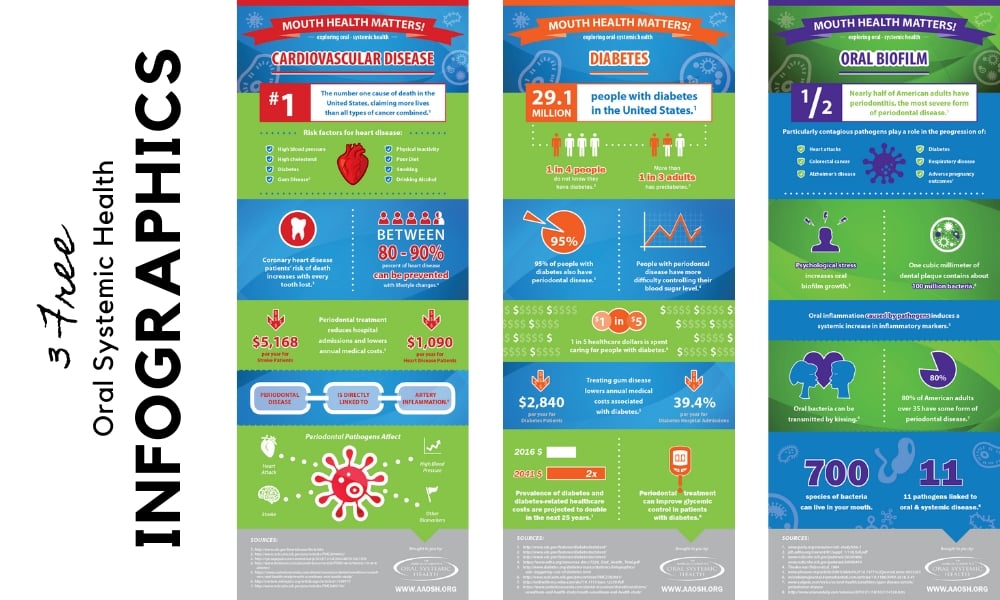Oral Systemic Facts and FAQ
Do you have Periodontal Disease?
- Do your gums bleed?
- Do you have a bad taste in your mouth?
- Are your gums red or swollen?
- Do any of your teeth feel loose?
- Do you currently suffer from diabetes, heart disease, rhuematoid arthritis, osteopenia or an unusual amount of stress?
- Do you brush and floss at least twice a day?
- Do you have numerous fillings, bridges, crowns in your mouth?
- Are your gums loose or move away from your teeth?
- Is there an area where your gums have receded (moved up or down) and make your teeth appear longer?
If you answered yes to any of the above questions, chances are you have some form of periodontal disease and need treatment. There is no cure for periodontal disease, it can only be maintained through proper and frequent supportive periodontal cleanings and proper home care. Once you have gum disease you will always have it, especially if one or more of the risk factors mentioned above are present and uncontrolled. Periodontal disease can be prevented provided none of the other risk factors are part of the equation with proper home care and consistent visits to your dentist or periodontist.
Oral-Systemic Health FAQ
General facts on the oral systemic links. Interested in learning even more? Click here to learn more about membership.
Like most services, the cost of treating gum disease is based on the time required and the difficulty of the procedures involved. Each person has unique and individualized problems which must be accounted for in determining a proper course of treatment. A proper evaluation will determine the extent of the disease and map out the best course for treatment along with its attendant costs. As usual, costs can be dramatically reduced and controlled by thorough and meticulous control of bacteria biofilms which will promote faster healing and better health maintenance.
Health professionals who are members of the American Academy for Oral and Systemic Health show a special interest in overall health and well-being of their patients and how the health of the mouth affects their general health. They pay special attention to emerging science which proves the many oral systemic links in our bodies. Newer technologies and procedures reduce health risk factors and assure better health (and longer lives!) for their patients. AAOSH brings together allied health sciences and professionals and provides a wide variety of educational opportunities that help member dental and medical practices with the best clinical judgment and clinical skills possible. Together this promotes excellent care for their patients and encourages proper inter-disciplinary care when necessary.
If your dentist and doctors aren't collaborating to prioritize your overall health, your healthcare is outdated! Find a practitioner here
It is good to be aware that problems in your mouth may be impacting your general health. If you are concerned that conditions in or around your mouth may be increasing health risk factors, you should consult with a dentist who is trained in oral-systemic healthcare.
The oral systemic links are clear! Find a practitioner that can detect, manage, or treat your oral systemic health conditions.
No. There are other oral health conditions which have significant impact and consequence to the rest of the body and your general health.
We know that gum disease is linked to heart disease, stroke, diabetes, pregnancy complications, Alzheimer’s, certain cancers, etc. Other conditions include oral cancer, oral airway and sleep apnea, TMJ – headaches & migraines, dental decay, and biocompatibility of dental filling materials (in genetically susceptible individuals). View the article on disease connected to poor dental hygiene.
These connections between the mouth and the body highlight the importance of good oral health and dental stability in assuring better general health.


